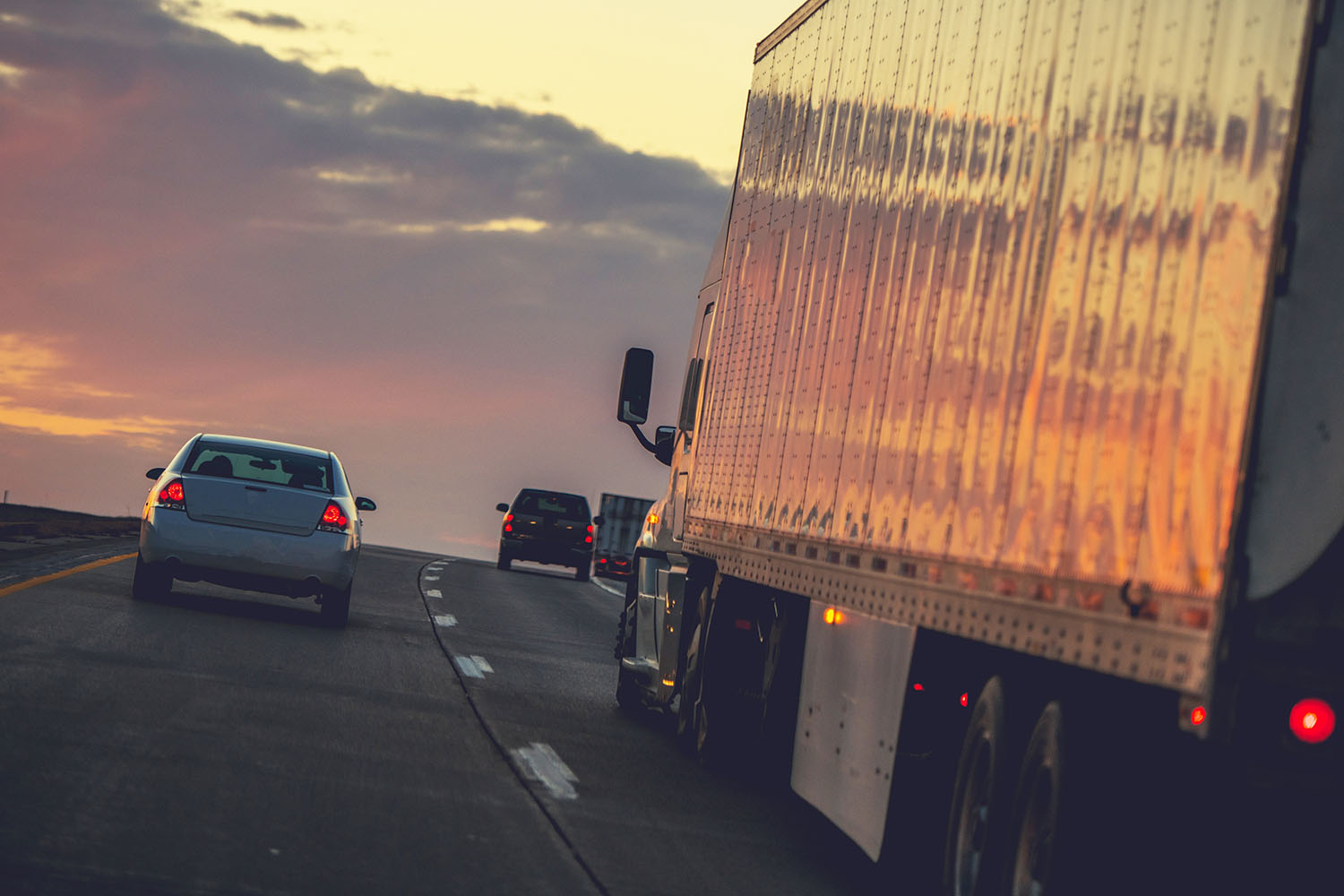A Washington, DC truck accident lawyer from Regan Zambri Long won’t let trucking companies and their insurers bully you after a devastating crash. Big trucking corporations have teams of aggressive lawyers and insurance adjusters ready to deny, delay, and diminish your claim – but we fight back harder. Our trucking accident attorneys know every tactic these companies use to avoid responsibility, and we use our decades of experience to beat them at their own game.
We’ve recovered millions for truck accident victims throughout the DMV by aggressively investigating every violation, demanding every record, and leaving no stone unturned. When trucking companies destroy evidence, we hold them accountable. When insurers make insulting lowball offers, we take them to court. Our attorneys handle these powerful opponents while you focus on healing from your injuries. Contact Regan Zambri Long today for a free consultation to learn how we’ll fight relentlessly for every dollar you deserve.
Contact Us Today to Schedule
A Free Consultation
Truck accident cases must be thoroughly investigated since there are usually more parties involved in the accident than in a regular auto accident claim. The trucking company will dispatch investigators immediately to the accident scene to gather evidence against you to protect its bottom line. You need a commercial truck accident lawyer in Washington, DC, on your side who can act just as quickly to recover fair compensation for your serious injuries.
Our truck accident lawyers will send demand letters to the trucking company so no evidence is destroyed. We will hire expert witnesses and accident reconstructionists to comb through the evidence to determine liability. We will hold those responsible and help secure fair compensation for your injuries.
Trucking companies hire large insurance companies to negotiate settlements on their behalf and keep costs low. Truck accident victims are often offered unsatisfactory settlements that won’t even pay the property damage. That is why you should hire a DC truck accident attorney who understands the law, has experience dealing with trucking companies and insurance adjusters, and knows how to achieve the settlement you and your loved one deserve. Contact us today for a free case evaluation.
A leading Washington, DC big rig accident attorney at Regan Zambri Long is ready to help you claim the compensation you deserve for your truck accident injuries. As soon as you hire Regan Zambri Long, our lawyers will dispatch a response team to go secure the scene of the truck crash site and gather the evidence needed to prove fault. This must be done immediately because the trucking companies can lose or purposely destroy significant evidence that can prove liability in the truck accident.
Our truck accident lawyers have helped numerous victims of truck accidents secure the money they need to pay for all injury or death-related experiences and compensation for physical and emotional suffering. We know the ins and outs of the laws surrounding commercial vehicles and can successfully prove the negligence or wrongful act that caused their damages.
Do not wait another moment if you were involved in a trucking accident. Contact a personal injury attorney at Regan Zambri Long as soon as possible to get the process started.

In most cases, those injured in truck crashes can receive the following financial compensation:
Since each personal injury case is unique, it’s hard to determine an average settlement for a trucking accident. There are several factors to take into account when determining a truck accident settlement, such as:
Speaking with an experienced truck accident lawyer in Washington, DC, can help you estimate the value of your truck accident claim. If you or a loved one was involved in a truck crash in Washington, DC, our truck accident lawyer is ready to speak with you. Contact us today to schedule a free consultation.
After a semi-truck accident in DC, you may be dealing with multiple negligent parties, such as the truck driver, the trucking company, the shipping company, and possibly third-party brokers.
To determine who are the responsible parties, your Washington, DC truck accident lawyer will take into account many factors, such as:
Discovering the at-fault party for your accident must be found quickly. An experienced truck accident attorney is needed to help you with your claim to determine liability.
Truck accidents are handled differently than car accidents in many ways. Not only are there more parties that can be held liable for your accident, but you are dealing with a larger and heavier vehicle than a typical passenger car. The larger the vehicle is, the more likely the accident will result in catastrophic injuries that can take years to recover from.
Other reasons include:
Semi-truck drivers require specialized licenses and must follow additional regulations, such as federal limits on how long they can drive every 24 hours. Drivers must also track their driving and break time and subject their vehicles to routine maintenance and weight checks.
Despite these federal regulations, it is common for drivers to be pressured into driving longer than allowed and falsifying break or driving records.
In addition to federal regulations, many localities like DC have additional rules that truck drivers must follow. The driver must know about and adhere to such rules, so drivers new to the area may unknowingly violate local laws.
If there are regulation violations, the driver and their employer may be subject to legal action regardless of whether the regulations were knowingly violated. A Washington, DC personal injury lawyer who specializes in truck accidents will understand the additional factors that affect semi-truck accidents and will be able to investigate any issues to ensure you have the most robust case possible.
According to the Federal Motor Carrier Safety Administration (FMCSA), there were 4,842 fatal truck accidents in 2020. And of those fatal crashes, more than 2 percent involved the tractor trailer hauling hazardous materials.
Hazardous materials involved in truck accidents come with additional risks and injuries to all those involved, which could affect your case and compensation claim.
Truckers don’t haul cargo across the country as private citizens; they work for someone. That means truck accidents involve the driver’s company, that company’s insurance provider, the company that hired the truck to haul their cargo, and truck or part manufacturers. If the truck’s cargo was found to have contributed to the accident, the manufacturer and packing company also may be at fault.
Additionally, trucking accidents often involve several vehicles, complicating who could be held responsible.
So many potentially liable parties are involved in truck accidents, and each party likely will call on their insurance provider for help, leading to double the initial party count. You must work with a Washington, DC truck accident lawyer who can navigate such complex cases so you get the compensation you need.
Federal Motor Safety Carrier Safety Administration (FMCSA) maintains rules and standards to promote safety in the trucking industry. Some of the most essential FMCSA regulations include:
If you sustained injuries in a trucking or bobtail truck accident, you likely do not know whether the driver or company violated these rules. However, our Washington, DC, truck accident attorneys can examine the company’s records and the truck’s ELD to determine if violations contributed to your injuries.

Because commercial trucks are so large and weigh so much, they are more likely to cause severe injuries in an accident. Regan Zambri Long has extensive experience handling many types of truck accidents, including:
What you do after getting into a truck accident can be important to your case. Your first step is to seek medical attention immediately, even if you don’t think you’re injured. If you choose not to go to the hospital at the accident scene, follow up with your physician in the following days to get checked.
Your truck accident attorney will be able to collect evidence you may not be able to get, such as the truck’s “black box,” an electronic recording device on the commercial truck that records what the truck driver had been doing before and during the accident. But there is evidence at the scene that you can collect to prove that the truck driver or trucking company may be negligent for the accident, such as:
Your truck accident lawyer will take all the evidence you give them and contact the defendant to work out a settlement. Since going to trial is costly and time-consuming – and can result in the defendant paying more damages – they will likely offer you a settlement instead.
All you have to do is stay in touch with your lawyer and get the proper medical treatment until you feel better. If you have an ongoing injury that won’t heal or could take a long time, your lawyer will also consult you about going after compensation for future medical bills.
In Washington, DC, the statute of limitations for personal injury claims is up to three years from the accident date. For wrongful death claims, the decedent’s family has up to two years from the date of death to file a claim. After your truck collision, contact our law office as soon as possible.
If you or a loved one were injured in a trucking accident anywhere in the Washington, DC, region, you need to act quickly. Evidence will disappear shortly after the accident and the trucking company will immediately dispatch a response team soon after learning about the crash. You need an experienced legal team to protect your rights and to make sure you get justice. Regan Zambri Long is that team. Contact our truck accident law firm today to schedule a free consultation.